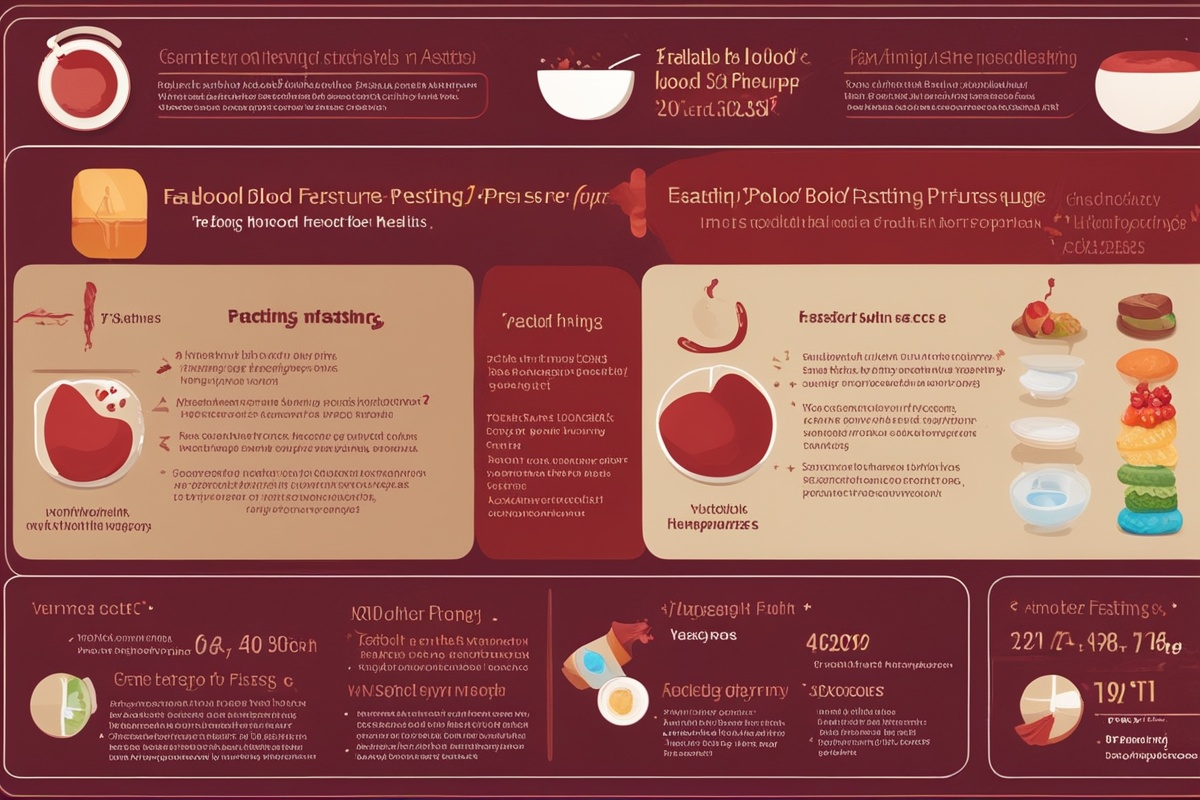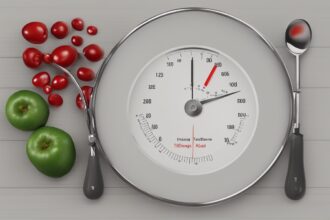Have you ever wondered if something as simple as when you eat could play a role in managing your blood pressure? It’s a question that’s been buzzing in health circles for a while now, especially with the rise of intermittent fasting (IF) as a popular lifestyle choice. For those grappling with hypertension—or high blood pressure—the idea that a dietary pattern could offer relief is nothing short of intriguing. Today, we’re diving deep into the intermittent fasting impact on hypertension, exploring the science, the real-world implications, and the practical steps you can take if you’re considering this approach. Stick with me as we unpack whether IF is a game-changer or just another health fad.
What Is Intermittent Fasting, and How Does It Work?
Intermittent fasting isn’t about what you eat but rather when you eat. It’s a pattern of eating that cycles between periods of fasting and eating. Think of it as giving your body a break from constant digestion. Popular methods include the 16/8 approach (fast for 16 hours, eat during an 8-hour window) or the 5:2 method (eat normally for five days, restrict calories to 500-600 on two non-consecutive days). Sounds simple, right? But beneath the surface, IF triggers some fascinating changes in the body, from improved insulin sensitivity to cellular repair processes like autophagy.
Now, imagine you’re someone who’s always on the go, grabbing snacks here and there without much thought. Switching to IF might feel like a drastic shift, but many find it surprisingly doable once they get into the rhythm. I’ve seen friends who swore they couldn’t skip breakfast adapt to a noon-to-8 p.m. eating window within a week. The key is starting slow and listening to your body. But how does this tie into blood pressure? Let’s get to that next.
The Connection Between Intermittent Fasting and Blood Pressure
Hypertension affects millions worldwide, often creeping up silently until it’s a serious problem. It’s like a ticking time bomb—high blood pressure strains your heart, arteries, and organs over time. So, could intermittent fasting defuse this danger? Research suggests it might. Studies have shown that IF can reduce blood pressure by improving metabolic health, reducing inflammation, and promoting weight loss—all of which are tied to hypertension.
For instance, a 2019 study published in Nutrition and Healthy Aging found that participants following an 8-week intermittent fasting regimen experienced significant drops in systolic blood pressure. Why? Fasting seems to lower insulin levels, which can reduce sodium retention in the kidneys—a major driver of high blood pressure. Plus, losing even a few pounds through IF can take pressure off your cardiovascular system. It’s not a magic bullet, though. Not everyone responds the same way, and some folks might even feel lightheaded or stressed during fasting, which could temporarily spike blood pressure. Balance is key.
If you’re curious about other lifestyle tweaks for hypertension, check out our post on Dietary Tips for Managing Blood Pressure. It’s a great companion read to understand how food choices intersect with fasting.
Real-World Evidence: Does Intermittent Fasting Impact on Hypertension Hold Up?
Let’s get down to brass tacks with some real-world insights. I recall a colleague who struggled with borderline hypertension for years. At 45, he was on the cusp of needing medication but wanted to try natural approaches first. After researching, he opted for the 16/8 fasting method, eating only between 1 p.m. and 9 p.m. Within a month, paired with light exercise, he noticed not just weight loss but also a consistent drop in his blood pressure readings—down from 135/85 to 122/78. His doctor was impressed but cautioned him to monitor closely, as fasting isn’t a one-size-fits-all solution.
Clinical trials back this up to an extent. A 2021 review in Hypertension Research highlighted that intermittent fasting could lower blood pressure by 3-6 mmHg in some individuals, especially those with obesity-related hypertension. That might not sound like much, but even small reductions can slash your risk of heart disease. On the flip side, the data isn’t universal—some studies show minimal impact, especially in people with normal weight or without metabolic issues. So, while the intermittent fasting impact on hypertension is promising, it’s not a guaranteed fix. Have you tried IF yourself? I’d love to hear how it worked for you—or didn’t.
Potential Risks and Considerations Before Starting IF for Hypertension
Before you jump on the IF bandwagon, let’s talk about the risks. Fasting isn’t for everyone, especially if you’ve got underlying health conditions or take blood pressure meds. Imagine fasting for 16 hours only to feel dizzy or irritable—your body might be telling you it’s not ready. For some, fasting can trigger stress hormones like cortisol, which might temporarily raise blood pressure. And if you’re on medication, skipping meals could mess with how your body absorbs those drugs, leading to unpredictable effects.
Here’s a personal tip: always consult your doctor before starting IF, especially if you’re managing hypertension. I learned this the hard way when a family member tried fasting without guidance and ended up with low blood sugar episodes. Also, hydration is non-negotiable—dehydration during fasting can exacerbate blood pressure issues. For more on staying safe with dietary changes, see our guide on Safe Fasting Practices for Beginners.
How to Start Intermittent Fasting Safely for Blood Pressure Management
Ready to give IF a shot? Let’s break it down into actionable steps to ensure you’re doing it right, especially with hypertension in mind. First, ease into it. Don’t go from three meals a day to a 16-hour fast overnight. Start with a 12/12 split—12 hours fasting, 12 hours eating—and gradually increase the fasting window. This gives your body time to adjust without shocking your system.
Second, focus on nutrient-dense meals during your eating window. Think lean proteins, whole grains, and plenty of veggies to support heart health. Third, monitor your blood pressure daily, ideally at the same time each day, to spot any unusual spikes or drops. I recommend a simple home monitor; they’re affordable and empowering. Lastly, don’t ignore how you feel—hunger is normal, but constant fatigue or headaches are red flags. Pair this with other heart-healthy habits by reading our piece on Exercise Tips for Lowering Blood Pressure.
Here’s a quick anecdote: a neighbor of mine started IF last year but overdid the fasting window too quickly. She felt sluggish and saw no change in her blood pressure. After scaling back to a gentler schedule and adding more potassium-rich foods (like bananas and spinach) to her diet, she noticed better results. It’s all about trial and error with a hefty dose of patience.
Balancing Expectations: Is IF a Long-Term Solution for Hypertension?
Let’s be real—intermittent fasting isn’t a cure-all. While the intermittent fasting impact on hypertension can be significant for some, it’s often most effective when paired with other lifestyle changes like stress management, regular exercise, and cutting back on sodium. Think of IF as one tool in your toolbox, not the whole workshop. Long-term studies on IF are still emerging, so we don’t yet know if the benefits hold up over decades or if the body adapts and plateaus.
Moreover, sustainability matters. Can you stick to fasting for months or years? For some, it’s a breeze; for others, it’s a slog. I’ve had periods where IF felt liberating, and others where I craved a late-night snack and threw in the towel. The trick is finding a rhythm that fits your life without feeling like a punishment. If it’s not for you, don’t sweat it—there are plenty of other ways to tackle hypertension.
References
- Nutrition and Healthy Aging: Effects of Intermittent Fasting on Blood Pressure (2019)
- Hypertension Research: Intermittent Fasting and Cardiovascular Health (2021)
- American Heart Association: Managing High Blood Pressure
This content is for informational purposes only and not a substitute for professional advice.






